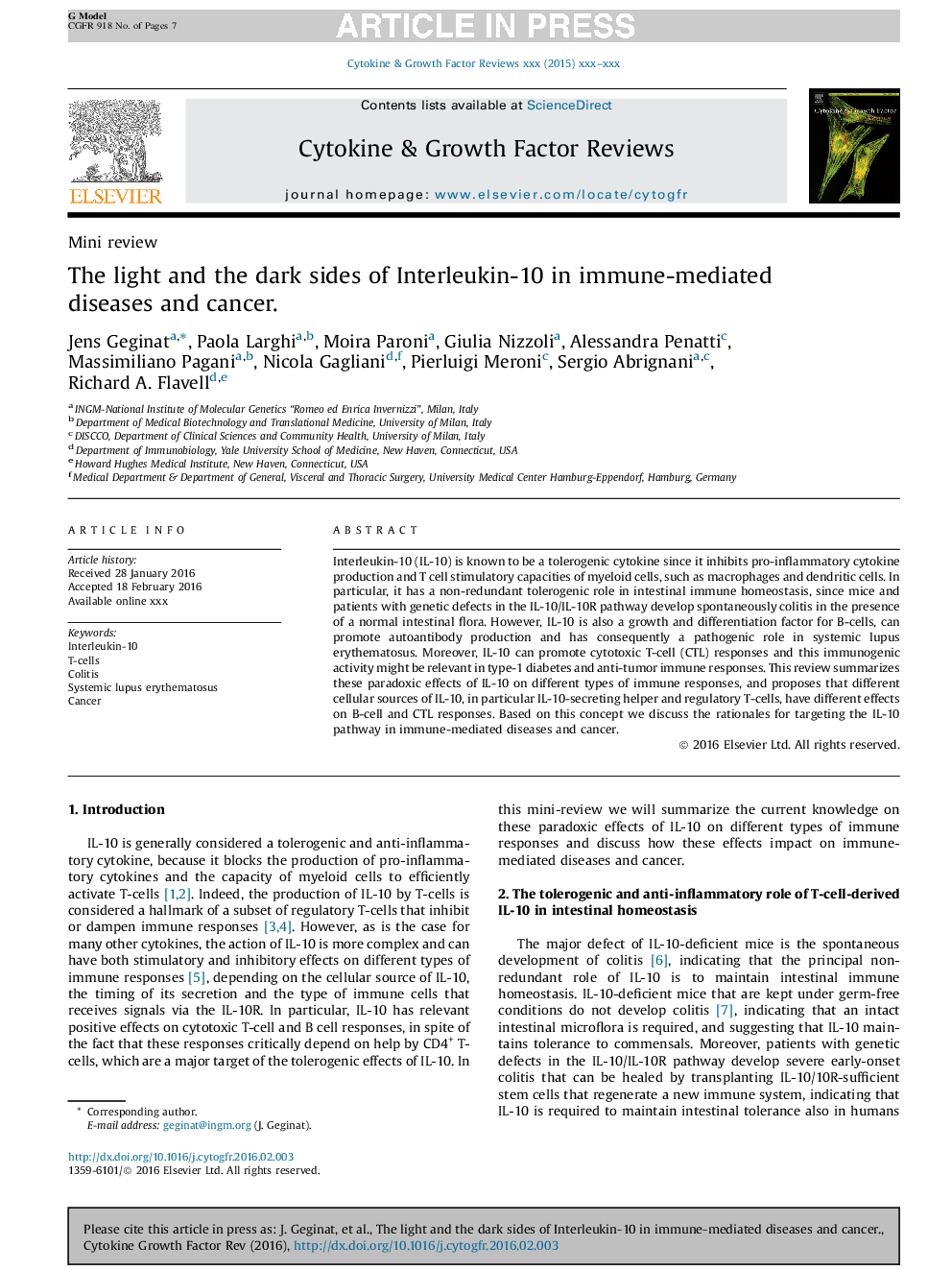| Article ID | Journal | Published Year | Pages | File Type |
|---|---|---|---|---|
| 8466436 | Cytokine & Growth Factor Reviews | 2016 | 7 Pages |
Abstract
Interleukin-10 (IL-10) is known to be a tolerogenic cytokine since it inhibits pro-inflammatory cytokine production and T cell stimulatory capacities of myeloid cells, such as macrophages and dendritic cells. In particular, it has a non-redundant tolerogenic role in intestinal immune homeostasis, since mice and patients with genetic defects in the IL-10/IL-10R pathway develop spontaneously colitis in the presence of a normal intestinal flora. However, IL-10 is also a growth and differentiation factor for B-cells, can promote autoantibody production and has consequently a pathogenic role in systemic lupus erythematosus. Moreover, IL-10 can promote cytotoxic T-cell (CTL) responses and this immunogenic activity might be relevant in type-1 diabetes and anti-tumor immune responses. This review summarizes these paradoxic effects of IL-10 on different types of immune responses, and proposes that different cellular sources of IL-10, in particular IL-10-secreting helper and regulatory T-cells, have different effects on B-cell and CTL responses. Based on this concept we discuss the rationales for targeting the IL-10 pathway in immune-mediated diseases and cancer.
Related Topics
Life Sciences
Biochemistry, Genetics and Molecular Biology
Cell Biology
Authors
Jens Geginat, Paola Larghi, Moira Paroni, Giulia Nizzoli, Alessandra Penatti, Massimiliano Pagani, Nicola Gagliani, Pierluigi Meroni, Sergio Abrignani, Richard A. Flavell,
